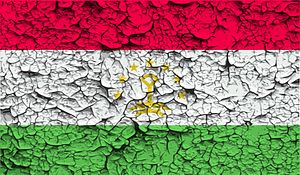Tajikistan’s five-year civil war devastated the country. The June 1997 peace accord*, achieved after the deaths of between 50,000 and 100,000 people, seemed for a time to be a model of reconciliation. The government, gracious in victory, agreed to lift bans on the parties that made up the United Tajik Opposition (UTO), lift mass media restrictions, committed to reforming the country’s power structure, promised to reserve 30 percent of government posts for UTO members, and pledged to issue amnesty “for persons who took part in the civil conflict.”
After 18 years, few of the government’s promises seem to have held. The leader of one of the core UTO parties, Muhiddin Kabiri of the Islamic Renaissance Party of Tajikistan (IRPT), decided to remain in exile in Turkey rather than return for the anniversary earlier this month–rumors are that the state is cooking up a case against him. In a recent interview Kabiri said that “some people are still harbouring the desire for complete victory” and that the peace, a compromise, is not enough for “hawks.”
Amnesty, it seems, just isn’t isn’t what it used to be.
On July 20, Jamoliddin Mahmudov, a member of the IRPT who had served on the country’s Central Election Commission, was sentenced to five years in jail. Mahmudov was a prominent memer of the IRPT, serving in the transitional government after the civil war and re-legalization of the party. Mahmudov’s February arrest came three weeks before the country’s flawed parliamentary election.
The charges against Mahmudov are for a crime that occurred nearly 20 years ago, during the closing months of the civil war. According to Asia-Plus, the government security agency said in a statement after Mahmudov’s arrest that police had found two Makarov pistols, 51 bullets, and a grenade fuse in home of Latif Sardorov, another IRPT member. The statement went on, RFE/RL’s Tajik service reported, to say that Sardorov told police that Mahmudov had given him the pistols in 1996.
Kabiri reportedly confirmed that one of the pistols did belong to Mahmudov. Asia-Plus reported that “according to him [Kabiri], the pistol was given to Mahmoudov during the civil war, when Mahmoudov co-chaired the ceasefire sub-commissions.”
Kabiri said that Mahmudov gave the pistol to Sardorov but instead of destroying it, as was the intention, he buried it in his yard. In 2013 Sardorov’s daughter-in-law told the police about the weapon. According to Kabiri, officers from the State Committee on National Security asked the local police to leave the gun in the ground. Kabiri made no mention of a second gun.
Sardorov’s testimony, as reported by Interfax, paints a slightly different picture. He says Mahmudov gave him both pistols in 1996 and demanded that he “should store carefully these guns, because they will be needed and he had done so during all these years.”
The OSCE, in its final report on the March parliamentary elections, noted that the election campaign “took place in a controlled environment, amid arrests of opposition politicians, candidates, and election officials.” Not only was Mahmudov arrested, but numerous others. While the dismantling of the IRPT–the region’s only legal Islamist party–makes a good headline, and the IRPT has been subject to incredible pressure, the truth is that all of the Tajik opposition is under strain.
In January Shuhrat Qudratov, the deputy chairman of the Social Democratic Party of Tajikistan (SDPT), was arrested and given a nine-year prison term for bribery and fraud. He’d also served as a defense lawyer for jailed businessman and politician Zayd Saidov, sentenced to 26 years in prison in 2013 on charges ranging from fraud to polygamy after he created a new (unregistered) political party and announced his intention to run for president. Maqsud Ibrohimov, an opposition activist who had lived in Russia for 15 years and had a Russian passport, somehow ended up back in Tajikistan in January. (How is a matter of debate, Russia as a rule doesn’t extradite people with Russian passports but Ibrohimov ended up in Dushanbe, unlikely of his own volition.) He was sentenced to 17 years in early July. A week before Mahmudov’s arrest Firdavs Sohibnazarov, an SDPT candidate was arrested. There are undoubtedly others.
The bones of the Tajik peace were always fragile, but never have they seemed so broken.
*The peace accord was signed on June 27, 1997 in Moscow–an earlier version of this story incorrectly said July 1997. The letter notifying the United Nations of the treaty is dated July 1, 1997.
































